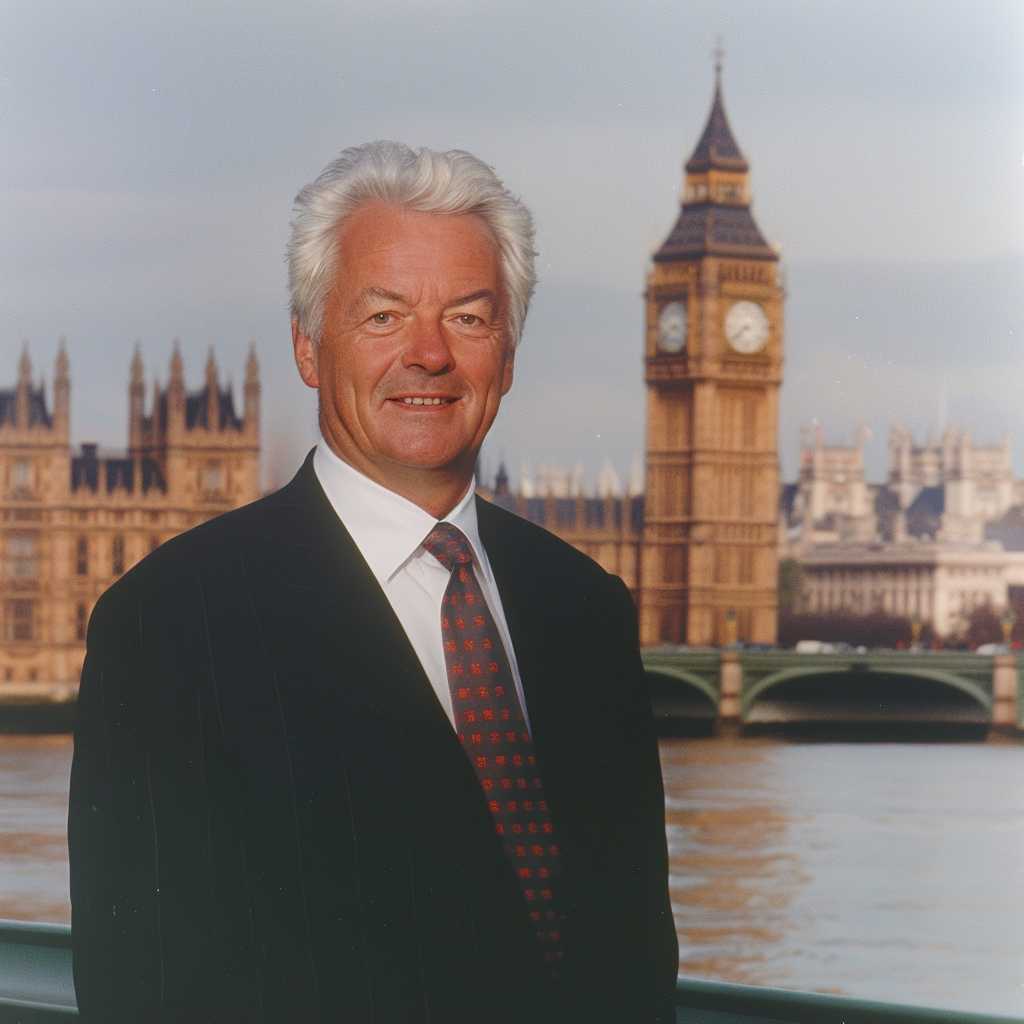# The Political Career of Alan Duncan: A Comprehensive Overview
Introduction: The Man Behind the Politics
Alan Duncan is a British Conservative Party politician who has played a significant role in the United Kingdom’s political landscape. His career spans over three decades, during which he has held various governmental and parliamentary positions, contributed to numerous policy discussions, and been an influential figure within his party and beyond.
Early Life and Education
Born on March 31, 1957, in Rickmansworth, Hertfordshire, Sir Alan James Carter Duncan was educated at two independent schools before proceeding to Oxford University’s St John’s College, where he studied Politics, Philosophy, and Economics (PPE). He also won a Kennedy Scholarship to study at Harvard University. These formative years shaped his world outlook and future political endeavours.
Beginning of Political Involvement
Alan Duncan began his venture into politics as an active participant in the student politics scene at Oxford, where he became the president of the Oxford Union. His initial professional career was not immediately in politics; instead, it commenced within the oil industry, where he worked for Royal Dutch Shell and as an independent consultant.
Entry into Parliament
Duncan’s political career in earnest began when he was elected to the House of Commons in 1992 as the MP for Rutland and Melton. His background in both politics and business provided a strong platform from which to contribute meaningfully to parliamentary activities. Duncan quickly established himself as a competent and passionate advocate for various causes.
Government Positions and Parliamentary Contributions
Following years of active contribution to debates and committees in the Commons, Duncan held a range of government positions. Notably, he served under Prime Ministers David Cameron and Theresa May, holding posts such as Minister of State for International Development and Minister for Europe and the Americas.
Advocacy and Reforms
Throughout his career in parliament, Duncan has been known for his advocacy of numerous initiatives and reforms. He supported measures to increase transparency in government expenses following a broad parliamentary controversy over expense claims. He was also an early proponent of legalising same-sex marriage in the United Kingdom.
Exiting Frontline Politics
In July 2019, Alan Duncan resigned as Minister for Europe and the Americas, signaling his step back from frontline politics after decades of service. Since then, he has remained active in various capacities but has dialed back his direct involvement in the hectic sphere of Westminster politics.
Legacy and Impact on British Politics
Alan Duncan’s legacy is one marked by his dedication to public service and progressive ideals within Conservative politics. He sought to influence his own party towards modernisation and has often been seen as a pragmatic negotiator through times of international crises and significant political changes.
Post-Political Life
After retiring from active political roles, Alan Duncan has turned to other pursuits, including writing. His diaries offer an insider’s view into the intricate workings of British politics, powerful figures within it, embellished with personal insights from his unique vantage point.
Brexit and Contemporary Relevance
Even after stepping back from day-to-day politics, Alan Duncan has remained a voice on contemporary issues, such as Brexit. His experience with European affairs has made him a sought-out commentator during the fraught negotiations between the UK and the EU.
Awards and Honours
His contributions have not gone unnoticed; Duncan was knighted in 2014 for services to international development reflecting his impact on broad global initiatives outside of British internal politics.
